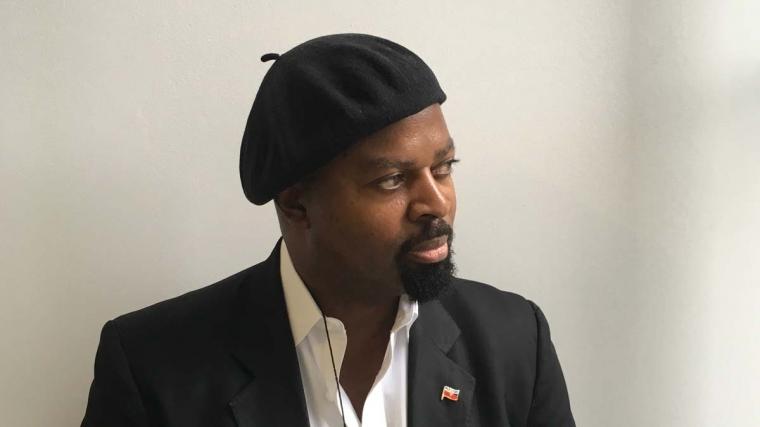If there’s one thing to learn from Ben Okri in this evening of conversation at Brighton Festival between the Famished Road writer and author Colin Grant it’s how to “upwake”.
The phrase, coined in his new (11th) novel The Freedom Artist – a post-truth fable set in an imagined future – describes a retaliation state after people find themselves unable or unwilling to think for themselves. He describes it as being the opposite of waking up, which is a slow uprising – being upwake is swift, vertical and immediate. It’s the need to question, and the challenging of blind acceptance.
He speaks of how words are not separate from reality, how myth shapes and affects our reality: “A book is not just the words. It’s a symbol of living, wisdom, memory and imagination. A book is a repository of secret dreams.” He talks about how power can de-stabilise the link to our truths which creates a butterfly effect in the re-telling of the story. It’s a warning – a battle cry almost, into how easy it is and what happens when fundamental myths are re-written by those in power.
Naturally, the conversation is drawn towards the NHS, Brexit, migration, Grenfell – Okri reads an excerpt from his poem In Praise of Notre Dame, speaking of “turbulence in the streets rotating anger in the air; division across the seas; swans of peace living in fear… Angels have fallen like tears, the winding stairs lead nowhere.”
Throughout Grant tries to nudge Okri into realms popular culture pattern matches, and their discourse is peppered with literary references to such as Seamus Heaney, Tolstoy, Camus. And throughout, Okri is having none of it. He doesn’t do as he’s told, playfully preferring to read different passages to the ones he’s asked to, steering the conversation from structured to casual, ambling and meandering through personal stories of his mother’s tales (or lack thereof), how he has been homeless, learned to live in doorways and read in the dark and how he has also won an OBE and the Booker Prize. He is a living example of how to re-version your own myth, if you follow your truth.
And this is where we are encouraged to “upwake” – to question – as “justice is not something to be left to the state, it’s a birth right”. So lean in when you listen. Ask questions in the middle. Because it’s everybody’s right to dream a myth of how the world should be.















Add comment